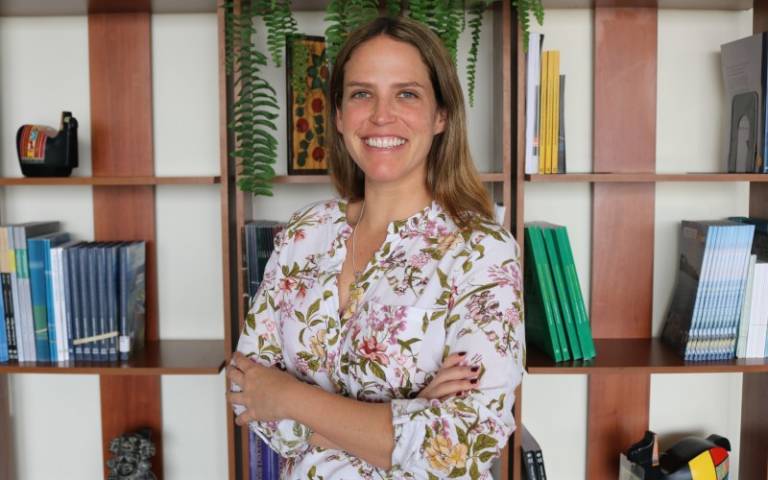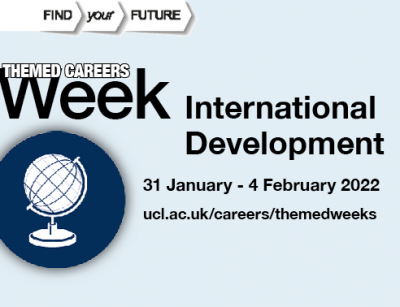Combating inequalities at UNESCO: Fatima Barbero
UCL Alum, Fatima Barbero, shares her career journey beyond graduation and gives an insight into her current role with Unesco, Peru.

31 January 2022
What is your current role and responsibilities?
I act as the technical liaison between the Head of the Office and each Sector´s coordinator: Culture, Education, Sciences and Communications.
I oversee and monitor to office projects, support the resource mobilisation strategy in order to increase our number of projects and impact in the country, and act as the gender equality focal point before other international organisations, NGOs and public sector entities.
Also, I coordinate directly with the United Nations System in Peru and our Headquarters in Paris and am a member of the office´s strategic team, in charge of the main decisions of the organisation in the country.
Describe a typical working day
I start my day around 8:30 - 9am, usually with a brief coordination meeting with the Head of the Office and his assistant in order to plan the day/week and do some follow-ups.
Depending on the day, my office routine could include:
- Programme proposal planning
- Monitoring project´s development
- internal thematic meetings (such as our gender equality task force, which I founded some years ago in order to properly mainstream the approach in all of our projects and activities)
- work meetings with external colleagues such as public authorities, other UN staff, NGO´s, among others.
Something that I really like about my position is that it has a great balance between overall project and activities coordination and more critical and analytical endeavours.
How did you end up in your current role?
I began my professional experience at the Institute of Peruvian Studies (‘IEP’ in Spanish), the most experienced Think Tank Research Centre in the country and home of the most important social thinkers of Peru. My three years at IEP were a key milestone in both my professional and personal development.
I had the opportunity, from a young age, to work hand to hand with inspiring and encouraging researchers, as well as to meet and dialogue with the top social scientists and public policy makers in Peru on issues related to inequality, poverty, gender equality, education, democracy and others.
In 2014, after a competency-based interview, and recommended by the IEP´s general director, I transitioned into the world of the United Nations. I began as the technical assistant of UNESCO Peru´s Head of the Office, which provided me with a holistic view and understanding of how the UN works, nationally, regionally and globally.
My experience working at UNESCO was enriching and very rewarding, but I still felt the need to complement my professional life with academic reinforcement. That’s when I decided to pursue a Master Degree at UCL.
After I graduated, I returned to my country, and I was asked to come back to UNESCO Peru to fulfil a new and improved position: Executive Officer.
Fatima's advice to students who want to work in this sector:
“Never underestimate the importance and the power of kindness!
What is the best thing about the sector?
Working for over ten years in this field has made me very much aware of the real complexity of my country and taught me the importance of approaching any social phenomenon from a multidisciplinary perspective.
As a Peruvian woman with a profound desire to combat structural inequalities and a huge impulse for social change, working at UNESCO has been extremely rewarding.
Among others, it has allowed me to meet and exchange with people from all over the world, and to work closely with public policymakers, academia, civil society and grassroots movements. Is very satisfying to work with people whose ultimate goal is to contribute to transforming societies into more tolerant, inclusive and just spaces.
Regarding what I would have done differently, I wish I should have started learning a new language from a younger age. I am completely fluent in Spanish and English and am currently learning French, determined to achieve full fluency.
 Close
Close


